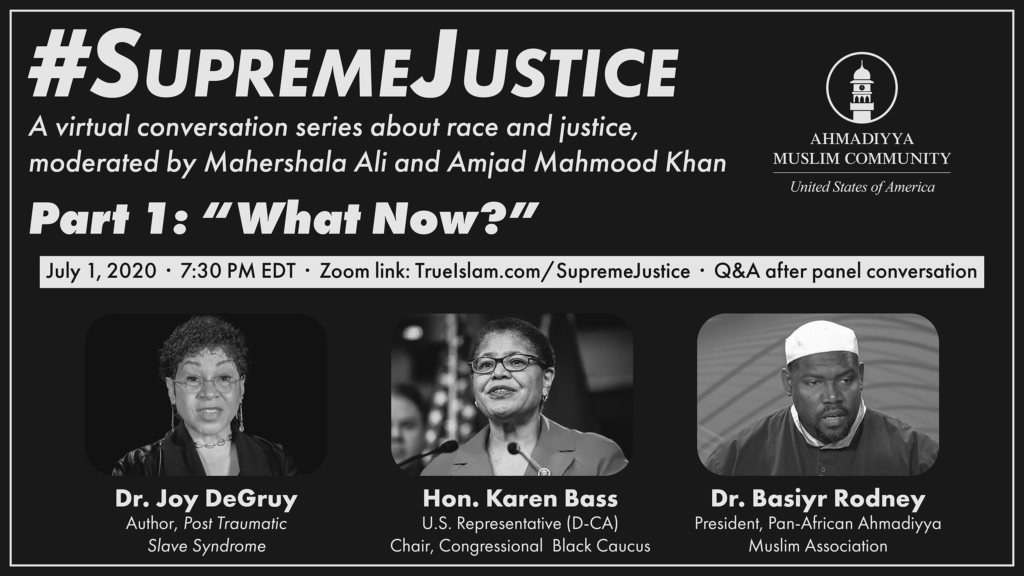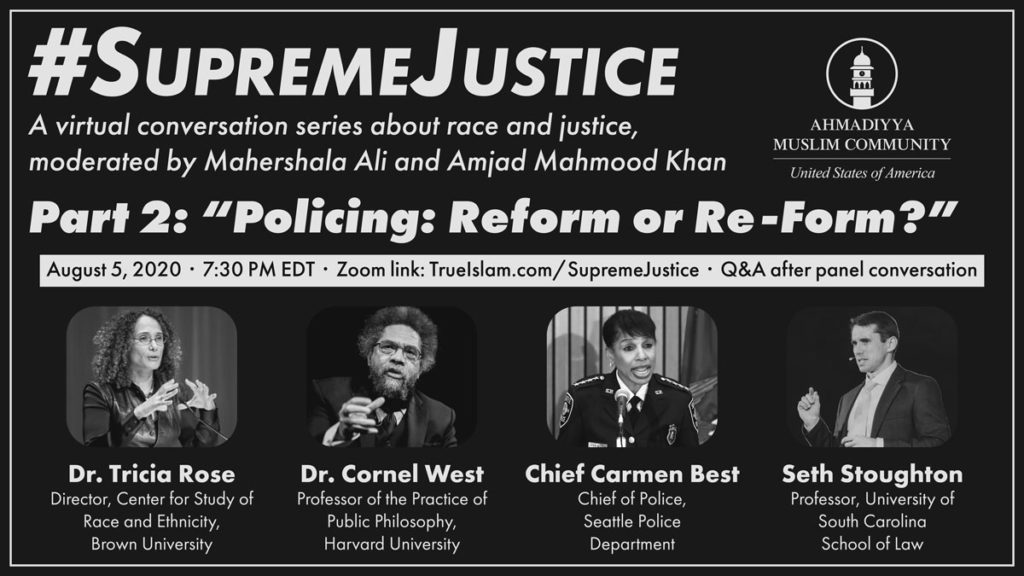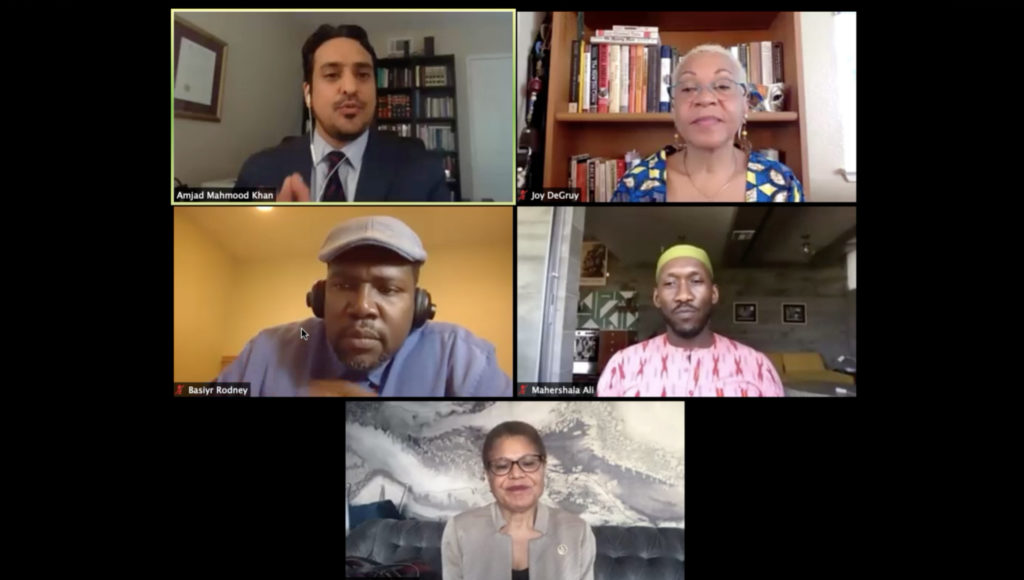Special Virtual Series on “Supreme Justice” Draws Experts, Lawmakers
Over 1,500 Participate in a Spirited Discussion
Since a Minnesota police officer murdered George Floyd on Memorial Day 2020, America has been reeling from the stings of injustice and racism, which though endemic for many years, has come to the forefront of our national conscience. Millions around the country have been taking to the streets in their cities to protest racial injustice against Black Americans.
On July 1, 2020, the Ahmadiyya Muslim Community USA launched a special virtual conversation series on race and justice that convened important voices to evaluate the root causes of systemic racism in America and potential policy prescriptions moving forward. Entitled, “What Now?”, the event drew over 1,500 people online.


The panel included Dr. Joy DeGruy, Professor Basiyr Rodney, U.S. Congresswoman Karen Bass, and Mahershala Ali. Amjad Mahmood Khan, National Director of Public Affairs for Ahmadiyya Muslim Community USA, began the program by explaining how the phrase “Supreme Justice” came about based on the guidance of the worldwide spiritual head of the Ahmadiyya Muslim Community, His Holiness Hadhrat Mirza Masroor Ahmad, who drew on the farewell sermon of Prophet Muhammad (peace be upon him), in which he categorically rejected superiority based on race.



Don’t Miss Part 2 Live. Click Below to Register
Presenting the history of racial discrimination, Dr. DeGruy described the common misconceptions about the end of slavery in America. The laws that followed the Emancipation Proclamation systemically pushed Black Americans back into slavery in the name of freedom.“[The] basic constitution of America was centered around this idea of white male supremacy, and every major institution in America is governed by the principle of white supremacy,” DeGruy claimed.


U.S. Congresswoman Karen Bass of California’s 37th District, Chair of the Congressional Black Caucus, urged viewers to examine every institution in the country and analyze systemic racism in every situation. “George Floyd’s slow and torturous execution was indisputable… the police officer acted with complete impunity,” Congresswoman Bass said. She added that a change of strategy is required to produce the next generation of leaders. “My mission in life is to build that movement focusing on the next generation of leaders who are coming up with proper grounding,” Congresswoman Bass said.
Mashershala Ali began his remarks stating that he is “exhausted and energized” simultaneously. Ali appreciated that people of all races were, now, not only acknowledging racism but standing against it. “We have tried to communicate the fact that our neighborhoods, our schools, education, the criminal justice itself, [and] all these elements in our world affect[ing] our upward mobility, affect our ability to be healthy, affect our ability to be whole,” Ali added.
Addressing the violence facing Black American and Black people globally, Dr. Basiyr Rodney said, “Every attempt that Black people have made to push themselves forward and to appeal to morality of the nation and of the world has been responded to with violence.” He considered the current situation as a traumatic event and a disruption in the history of world communities, similar to other events that thrusted communities to stand up against structural injustices. Professor Rodney explained that such attempts are made to restore the humanity of white people as we try to give a human identity to the Black community. He referred to His Holiness Mirza Masroor Ahmad’s persistent guidance that if world peace is what we are seeking we must confront controversial issues and collectively find ways to resolve them. Without such resolution, attempts at global peace are futile.
Catch Part 2 Live. Click Link Below To Register.



Click Here to Register for Part 2: “Policing: Reform or Re-Form?”

